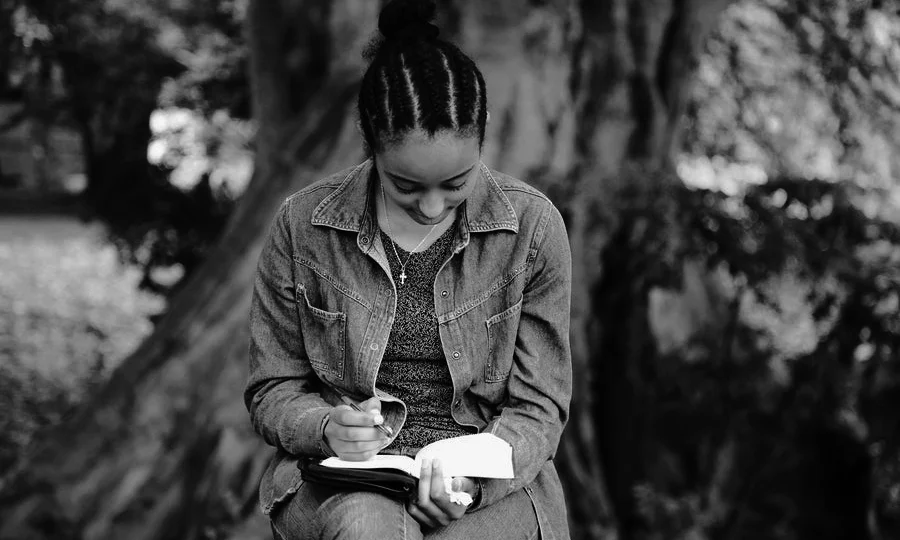On Reading (To People Who Aren't My Children)
(This piece was originally published in Freelance, the Saskatchewan Writers' Guild’s membership magazine.)
1
The first time I did a public reading was also the first time I contemplated quitting writing.
The contemplating began about three sentences in, when I remembered that I hadn’t introduced the story, hadn’t even read the title, but decided it was too late to start over. Even as I went on reading, haltingly, with my heart slamming loudly against my ribs, with the wind trying to blow the loose pages out of my trembling hands — this was an outdoor public reading at the Farmer’s Market — a debate ensued in my head. Were those thirty or so people already regretting their decision to sit down? Were they now thinking, “Well this is a half hour I’ll never get back.”
By the time I left the podium my mind was made up: if becoming a writer meant I’d have to suffer again the excruciating ordeal of reading to people, then I had no choice but to quit. At the time I’d been writing for a year and was very self-conscious about the fact that I didn’t have much to show for it. If my spouse introduced me as a writer to his friends, I’d say something self-deprecating to discourage questions about where they might find my work.
When I was walking to my chair after the reading, still feeling like I might get sick, a woman wearing white slacks and walking with a cane stopped in front of me and said, “Whatever you do, don’t ever give up writing.” I was stunned. Was she a mind reader? She walked slowly on and joined the crowds thronging to the produce stands. I sat down but followed her with my eyes to make sure she wasn’t a figment of my imagination. She was real. I said to myself: Remember this moment. Try to remember it always.
I remembered how I’d said those same words to myself nearly a decade before when I first arrived in Regina. It was a December night. I stepped outside the airport and a freezing breeze whipped my face. Shocked that air could be assaulting, I gasped. The air I exhaled formed a patch of white against my black scarf, my own breath crystallized, at last given weight. Such magic! Remember this moment, I told myself.
2
One year later. At Sage Hill Writing Experience this past July, I sat with other writers who, after a few days of us eating together and chatting, had become my friends. We were listening to Guy Vanderhaeghe read from his short story The Jimi Hendrix Experience. I’d read it the year before but I didn’t recall laughing as hard as I was, hearing Guy read it. He brought the characters to life so that I could see the story unfolding so clearly, these teenage boys entertaining themselves by annoying everyone else.
After the reading I meant to ask Guy how he did it. How did he manage to be both a fantastic writer and a wonderful public reader? But I didn’t get around to it. I’m a little worshipful about the authors I admire; in their presence my wits abandon me.
A couple of days later it was my turn to read, as all Sage Hill retreat participants must. I was inside my head all day, wallowing in anxiety, worried I wouldn’t make it through the one-page excerpt I planned to read. When I went to print it off, another writer was there whose short fiction is, for me, the musical equivalent of a Joni Mitchel song; I never heard one I didn’t like. He asked me if I was nervous about reading and I said, “You can tell?”
“Nerves are good,” he said. “If you’re a writer and you don’t feel nervous before a public reading, that’s when you need to worry.”
His words eased the pressure in my chest a little, but the calm didn’t last.
Another writer friend, a poet, offered me a homeopathic solution. Rescue Remedy: a blend of herbs meant to calm nervous wrecks. She squeezed four tear-shaped drops of it from a small bottle into my full water glass and said to sip it slowly while I waited my turn at the podium. Within minutes of drinking it, I could feel the edges of myself softening, and a relaxing sensation in my head like starbursts in a snow globe. As I walked to the podium, I felt like I was floating and everything, everybody, was pleasant. This mood persisted even when halfway through my reading I heard the voice of my six-year-old saying, the way he will occasionally remind me when I read to him, “Mom, you say words funny sometimes.”
Afterwards, many of us sat outside the retreat centre in a big circle singing all kinds of songs rather loudly. And what I remember the most is this: I was sitting shoulder-to-shoulder with Guy Vanderhaeghe, and we were singing a Tracy Chapman song, reading the lyrics off the small screen of my smartphone, and the moon was fat and bright in the sky, and the stars were coming out by the millions. Such magic! I said to myself: Try and remember this moment.
This piece was originally published in Freelance, the Saskatchewan Writers' Guild’s membership magazine.

